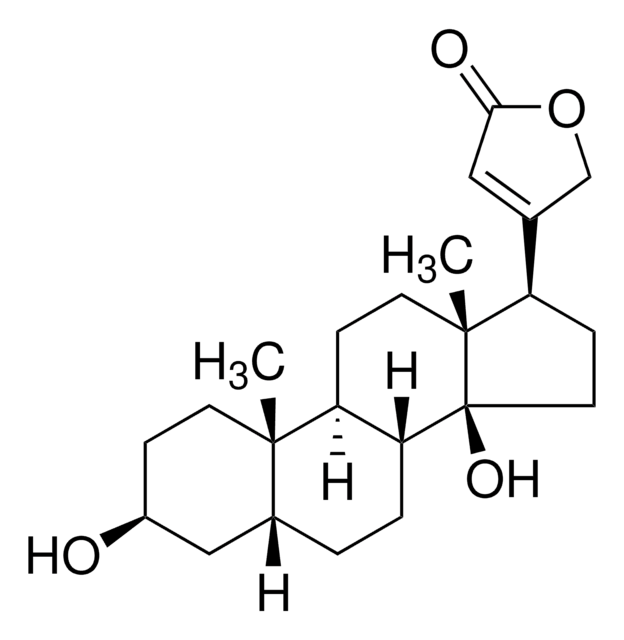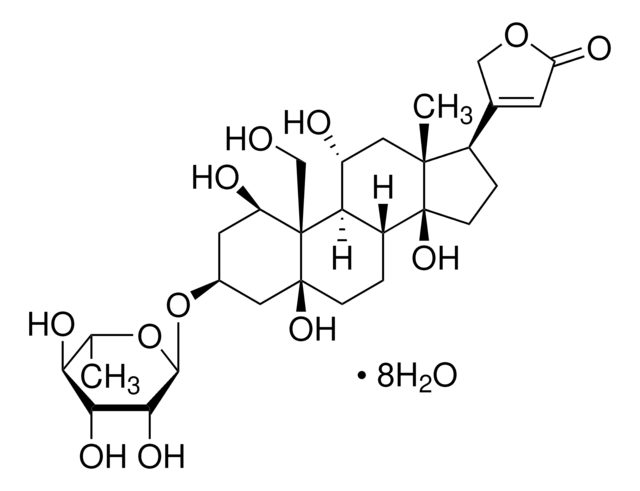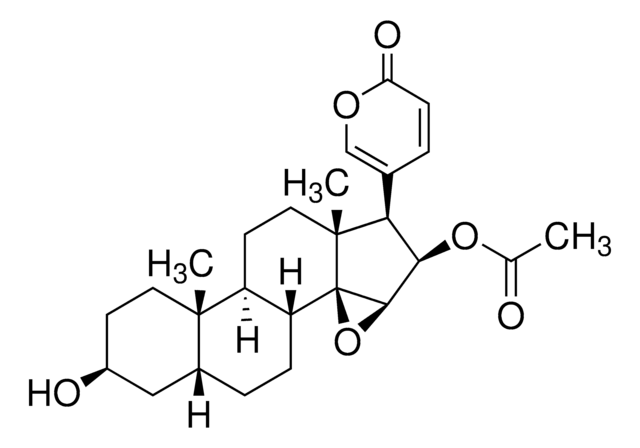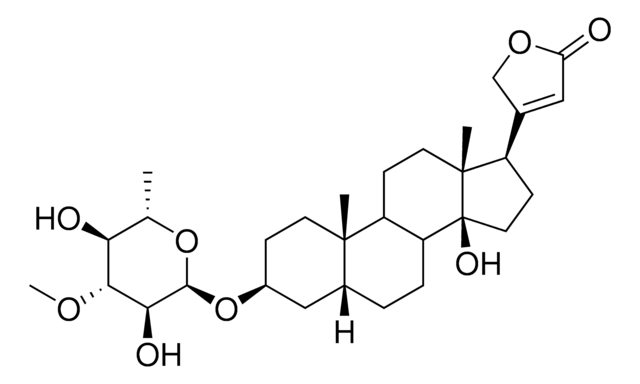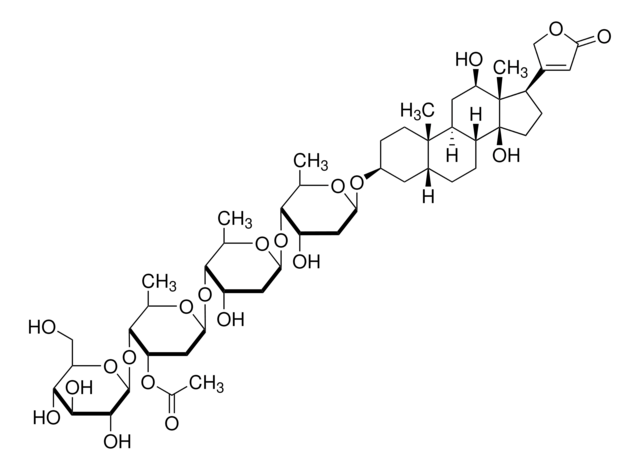203900
Bufalin
A cardiotonic steroid isolated from toads of Bufo species that potently inhibits ouabain-sensitive Na+,K+-ATPase activity (IC₅₀ = 1.4 nM).
Synonyme(s) :
Bufalin, 5β, 20(22)-Bufadienolide-3β, 14-diol
About This Item
Produits recommandés
Niveau de qualité
Description
RTECS - EI2962500
Essai
≥98% (HPLC)
Forme
solid
Fabricant/nom de marque
Calbiochem®
Conditions de stockage
OK to freeze
protect from light
Couleur
white to off-white
Solubilité
DMSO: 25 mg/mL
warm ethanol: 25 mg/mL
Conditions d'expédition
ambient
Température de stockage
−20°C
Chaîne SMILES
O1C=C(C=CC1=O)[C@@H]2[C@@]3([C@@](C4C([C@@]5([C@@H](C[C@H](CC5)O)CC4)C)CC3)(CC2)O)C
InChI
1S/C24H34O4/c1-22-10-7-17(25)13-16(22)4-5-20-19(22)8-11-23(2)18(9-12-24(20,23)27)15-3-6-21(26)28-14-15/h3,6,14,16-20,25,27H,4-5,7-13H2,1-2H3/t16-,17+,18-,19?,20?,22+,23-,24+/m1/s1
Clé InChI
QEEBRPGZBVVINN-ZXRSHIDQSA-N
Description générale
Actions biochimiques/physiologiques
Ouabain-sensitive Na+,K+-ATPase activity
Conditionnement
Avertissement
Reconstitution
Autres remarques
Kawazoe, N., et al. 1999. Oncogene 18, 2413.
McGowan, M.H., et al. 1999. J. Pharmacol. Exp. Ther. 289, 1559.
Watabe, M., et al. 1998. Oncogene 16, 779.
Hashimoto, S., et al. 1997. Leuk. Res. 21, 875.
Morris, J.F., et al. 1997. Comp. Biochem. Physiol. A Physiol. 118, 599.
Brownlee, A.A., et al. 1990. Clin. Sci.78, 169.
Informations légales
Mention d'avertissement
Danger
Mentions de danger
Conseils de prudence
Classification des risques
Acute Tox. 2 Oral
Code de la classe de stockage
6.1A - Combustible acute toxic Cat. 1 and 2 / very toxic hazardous materials
Classe de danger pour l'eau (WGK)
WGK 3
Point d'éclair (°F)
Not applicable
Point d'éclair (°C)
Not applicable
Certificats d'analyse (COA)
Recherchez un Certificats d'analyse (COA) en saisissant le numéro de lot du produit. Les numéros de lot figurent sur l'étiquette du produit après les mots "Lot" ou "Batch".
Déjà en possession de ce produit ?
Retrouvez la documentation relative aux produits que vous avez récemment achetés dans la Bibliothèque de documents.
Notre équipe de scientifiques dispose d'une expérience dans tous les secteurs de la recherche, notamment en sciences de la vie, science des matériaux, synthèse chimique, chromatographie, analyse et dans de nombreux autres domaines..
Contacter notre Service technique
